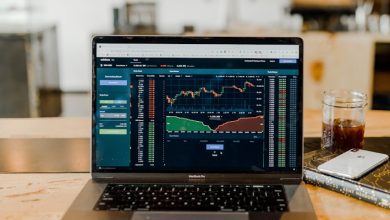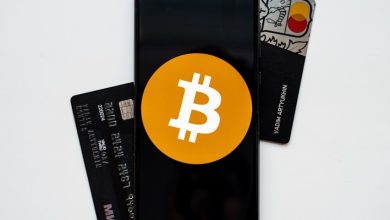How to Use Decentralized Exchanges for Enhanced Security

- Understanding the concept of decentralized exchanges
- Benefits of using decentralized exchanges over centralized ones
- Steps to get started with a decentralized exchange
- Tips for ensuring security while using decentralized exchanges
- Exploring the various decentralized exchange platforms available
- Comparing the security features of decentralized exchanges with centralized exchanges
Understanding the concept of decentralized exchanges
Decentralized exchanges (DEX) are platforms that allow users to trade cryptocurrencies directly with one another without the need for a central authority to facilitate the transactions. This peer-to-peer trading system provides users with increased security and privacy compared to centralized exchanges, where users must entrust their funds to a third party.
One of the key advantages of decentralized exchanges is that they do not hold users’ funds, reducing the risk of hacking and theft. Instead, trades are executed using smart contracts, which are self-executing agreements stored on a blockchain. This means that users retain control of their funds throughout the trading process, enhancing security and reducing the risk of loss.
By eliminating the need for a central authority, decentralized exchanges also reduce the risk of censorship and regulatory interference. Users can trade directly with one another, without having to comply with the rules and regulations imposed by centralized exchanges. This provides greater freedom and autonomy for traders, allowing them to transact without fear of external interference.
Overall, understanding the concept of decentralized exchanges is crucial for anyone looking to enhance their security when trading cryptocurrencies. By using a DEX, users can enjoy increased security, privacy, and autonomy, making it an attractive option for those looking to take control of their own financial transactions.
Benefits of using decentralized exchanges over centralized ones
There are several benefits to using decentralized exchanges over centralized ones. One of the main advantages is enhanced security. Decentralized exchanges do not store users’ funds on a central server, which makes them less susceptible to hacking attacks. This means that users have more control over their funds and are less likely to fall victim to security breaches.
Additionally, decentralized exchanges offer greater privacy to users. Since transactions are peer-to-peer and do not require users to disclose their personal information, users can trade assets without the risk of their data being compromised. This anonymity is a key feature for those who prioritize privacy in their trading activities.
Furthermore, decentralized exchanges are more resistant to censorship. Centralized exchanges are often subject to regulations and government intervention, which can limit the trading options available to users. Decentralized exchanges, on the other hand, operate on a distributed network that is not controlled by any single entity, allowing for greater freedom in trading.
Steps to get started with a decentralized exchange
To get started with a decentralized exchange, you first need to choose a platform that aligns with your trading needs. Research different decentralized exchanges to find one that offers the features and user experience you prefer. Once you’ve selected a platform, create an account by following the registration process. This typically involves providing an email address and setting up a password for your account.
After you’ve created an account, you’ll need to secure your funds by setting up a wallet. Decentralized exchanges do not hold your funds like centralized exchanges do, so you’ll need to connect your wallet to the exchange in order to trade. Make sure to choose a secure wallet that gives you full control over your private keys.
Next, you’ll need to deposit funds into your wallet in order to start trading on the decentralized exchange. This can usually be done by transferring cryptocurrency from another wallet or exchange into your decentralized exchange wallet. Once your funds are deposited, you can start placing buy and sell orders on the exchange.
When trading on a decentralized exchange, it’s important to pay attention to the liquidity of the trading pairs you’re interested in. Some pairs may have lower liquidity than others, which can impact the speed and cost of your trades. Keep an eye on the order book to see how much volume is available for the pair you want to trade.
Finally, always remember to conduct thorough research and due diligence before trading on a decentralized exchange. While decentralized exchanges offer enhanced security and privacy, they can also be more complex to use than centralized exchanges. Take the time to familiarize yourself with the platform and its features before diving into trading to ensure a smooth and successful experience.
Tips for ensuring security while using decentralized exchanges
When using decentralized exchanges, it is crucial to prioritize security to protect your assets. Here are some tips to ensure security:
- Utilize a hardware wallet to store your cryptocurrencies securely.
- Enable two-factor authentication on your exchange accounts for an added layer of security.
- Regularly update your software and firmware to protect against vulnerabilities.
- Avoid sharing your private keys or seed phrases with anyone to prevent unauthorized access.
- Verify the authenticity of the decentralized exchange before trading to avoid scams.
By following these tips, you can enhance the security of your transactions on decentralized exchanges and minimize the risk of potential security breaches.
Exploring the various decentralized exchange platforms available
When it comes to decentralized exchanges, there are several platforms available for users to explore. These platforms offer a variety of features and functionalities that cater to different needs and preferences. Some popular decentralized exchange platforms include Uniswap, SushiSwap, and PancakeSwap. Each platform has its unique characteristics and user interface, making it essential for users to research and compare them before deciding which one to use.
Uniswap is known for its user-friendly interface and extensive range of tokens available for trading. SushiSwap, on the other hand, offers additional features such as staking and yield farming, making it a popular choice for users looking to earn passive income. PancakeSwap is a decentralized exchange built on the Binance Smart Chain, providing users with faster and cheaper transactions compared to other platforms.
By exploring the various decentralized exchange platforms available, users can choose the one that best suits their needs and preferences. It is essential to consider factors such as user interface, available tokens, fees, and additional features when selecting a platform. Additionally, users should also consider the security measures implemented by each platform to ensure the safety of their assets.
Comparing the security features of decentralized exchanges with centralized exchanges
When comparing the security features of decentralized exchanges (DEX) with centralized exchanges (CEX), it’s important to consider the differences in how each type of exchange operates.
Decentralized exchanges are known for their emphasis on security and privacy. One of the key features of DEX is that they do not hold users’ funds, which reduces the risk of hacks and theft. Instead, trades are executed directly between users through smart contracts on the blockchain, eliminating the need for a central authority to control the exchange process.
On the other hand, centralized exchanges act as intermediaries in trades, holding users’ funds in centralized wallets. This centralized control makes CEX more vulnerable to security breaches, as hackers can target a single point of failure to gain access to a large amount of funds.
In terms of user data privacy, DEX are also preferred over CEX. Decentralized exchanges do not require users to go through a KYC (Know Your Customer) process, which means users can trade anonymously without having to provide personal information. In contrast, centralized exchanges often require users to undergo KYC verification, putting their personal data at risk of being compromised in a data breach.
Overall, decentralized exchanges offer enhanced security features compared to centralized exchanges, making them a more secure option for users looking to trade cryptocurrencies while protecting their funds and privacy.



